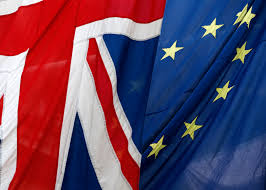Lord C-J says Ministers must ensure the multi-billion pound fashion industry industry is not put at risk
This is a piece I recently did for the House Magazine: ‘From fashion to furniture, Britain’s design sector relies on EU protections, writes Lord Clement-Jones’.
It was notable from her speech at the Mansion House earlier this month that the Prime Minister has woken up to the threat to our broadcasters of exit from the EU through loss of country of origin rules – the rules which have enabled the UK to operate as an international broadcasting hub.
The fact is, however, that this is but one of the many severe threats to our creative industries posed by Brexit.
The Prime Minister also needs to recognise the threat posed by Brexit to the design sector, which includes the fashion industry and furniture lighting and furnishings and many other design areas, from the potential loss of European unregistered design rights for United Kingdom-generated designs.
European design laws protect the individual character of a design, in particular as they relate to shape, texture, contours, lines, colour, ornamentation or materials. UK unregistered design right protects only the shape and configuration of a design.
Recently the Law Society made the news when it revealed that London Fashion Week is under serious threat from Brexit. They said it could lose its status as an event where new clothing creations are unveiled because laws that protect European fashion houses from unauthorised copying may no longer apply in London when Britain leaves the EU next year.
Fashion houses that first reveal an unregistered design on the London catwalk would be at risk from copies going on sale in the EU.
"As the majority in the industry are micro and SME design innovators with less than four employees they are particularly vulnerable to infringement of their designs."
— Lord Clement-Jones
In 2016 the value of UK fashion and textile exports stood at £9.1bn. The fashion industry, through the British Fashion Council, has highlighted the serious consequences for British fashion designers if they lose unregistered EU design rights protection in the other 27 member states. Potentially losing the protection currently available under EU law will leave these UK designers in a disadvantageous position versus their EU competitors.
These are typical but high profile examples of how designers across the board may be forced to launch new designs in EU countries after Brexit.
The potential impact to our economy is massive. UK design and design skills in the UK are currently worth a startling £209bn. This is put at risk if legal protection for design IP is weakened.
The reason for this is that copying is endemic not only in the fashion sector but in the lighting, furniture, furnishings, gift and product and many more design sectors, all of which will also be affected by loss of the EU unregistered design right. As the majority in the industry are micro and SME design innovators with less than four employees they are particularly vulnerable to infringement of their designs.
In the Lords this Thursday I will be seeking a firm assurance from the government that it will provide a solution to the potential loss of EU design rights in one of the fastest growing sectors in the economy. I will be calling on ministers to end this major threat to our design sector and introduce legislation which will offer the same EU unregistered IP rights’ protection as they now enjoy in 28 member states.
Unlike some other Brexit conundrums, in this case the solution lies in government’s hands and we and the design industry have every right to expect urgent action.
Lord C-J: Blueprint for Creative Industries needed post Brexit vote
I am seriously concerned like many others for the future of the creative industries after the Brexit vote in the referendum. Here is what I said in the Lords debate:
Last weekend I took part in the March for Europe from Park Lane to Parliament Square. It consisted largely of young people and families, all utterly concerned about and opposed to our leaving the European Union. All of them up to that point had seen their identity as bound up with Europe and now see an uncertain and more isolated future. I could not help reflecting while on the march on how my generation had let theirs down by voting in the way that it did and on how many in politics had failed to deliver a more positive message about the benefits and impact of being in the EU over the years, or to create a fairer society of the kind so well outlined by my noble friend Lady Manzoor yesterday and by the most reverend Primate. But whatever our regrets, we cannot afford to sit back and be buffeted by the consequences of Brexit. We need a steely determination to make the best of it and demonstrate to the no doubt overwhelmed Brexit unit how we can mitigate the risks and take the opportunities that arise.
Our tech, digital and creative industries currently punch way above their weight globally. We now need to develop a blueprint to show how they can continue to thrive despite not being in the EU and despite the uncertainties of the exit process, so they will be able more than ever before to benefit from the UK’s creative skills and culture. This depends on the UK in general and London in particular remaining a global hub for creative businesses. The essence of this is our continuing ability to retain, recruit and develop the best and most diverse talent from around the world.
Our film and video games studios, publishers, advertising agencies, music recording facilities and design and post-production houses depend on this flow of talent, failing which other locations within the EU—eastern and central Europe, for example—will appear more attractive. It would be deeply damaging if we or the EU erected barriers equivalent to those in the US, which mean that many UK musicians who plan to perform there find that visa-processing problems mean cancelled tours and postponed engagements. The truth is that the lack of free movement of talent will mean a less creative and diverse culture in the UK and will spell danger for the UK as a creative hub.
Individual parts of the creative sector have many unknowables. Will advertising services, that powerhouse of our creative economy, be subject to EU barriers when sourced from the UK if we are not in the internal market? Activities carried on by the audio-visual group are particularly vulnerable. The audio-visual media services directive has, since 1989, had a major impact by limiting applicable regulation to the country of origin. Almost a quarter of its exports are to the EU. It risks being caught between being unable to relocate production as it would fail to qualify as a British product—but, if so, not being treated as EU content. Once the UK is outside the EU, unless we specifically achieve a negotiated deal, the UK will no longer be able to come within the quotas applied by other European countries for their television broadcast services, which in some cases are as high as 70%.
In funding this type of product, every market matters, and if the EU falls out of the equation it could well mean that investment is no longer forthcoming to the same extent. Amanda Nevill, CEO of the BFI, has also warned of the impact on independent film-makers of the loss of EU funding from the Creative Europe programme. This adds up to the need to put in place at the very least greater government support for investment in these audio-visual products.
Then we have the digital economy, which is a vital part of our future. The digital single market being developed by the EU up to now was seen to be a cornerstone for the future of our tech and creative industries. We will now lose our influence on how regulations and intellectual property reforms are shaped, especially as regards the exceptions to copyright protection which are being developed.
We may also need to adopt safe-harbour provisions of the kind currently required between ourselves and the US in respect of data. Then there are the resources that will be needed now by government here and overseas through our diplomatic and consular services and UKTI in counteracting the impact of Brexit and, as Sir Martin Sorrell has said, targeting fast-growth markets. We need to redouble our efforts to promote Britain as a place to invest in, partner and do business with, especially in the creative industries. Just boosting the budget of the GREAT campaign will not be enough.
When we are outside the EU state aid rules, there may well be some opportunities through improved tax incentives to counteract some of these risks and to maintain the attractiveness of the UK as a destination for the creative industries. But I can see many other industries clamouring for special treatment, too.
I will continue to fight for the closest possible relationship with the EU. But what we need for this sector, as for others, is a cool appreciation of the actions we need to take and the deals we need to do to safeguard them. I am pleased that the Creative Industries Council is taking on this task, constituted as it is largely by a wide range of private sector players in the creative and digital industries, including television, computer games, fashion, music, arts, publishing and film, but co-chaired by Ministers from both BIS and the DCMS.
The Ministers and departments sponsoring our tech, digital and creative industries must immediately, as a priority, start working with the Brexit unit and with Justine Simons, the new deputy mayor for culture and the creative industries in London. It is vital, as she said last week, that we,
“maintain the flow of ideas and creative talent and shore up our cultural economy”.
I sincerely hope that this Government, whoever heads it, take heed of those wise words and recognise the importance of these industries to our future.


